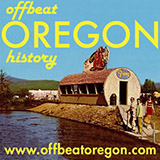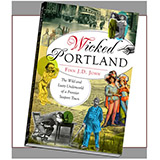TRANS-MEDIA STORYTELLING
A proposal for a revolution in ebook publishing:
Using an ebook as the hub of a trans-media storyworld that you can actually get paid to be part of? Yes, I think so.
By Finn J.D. John
Tuesday, May 20, 2014
NOTE: This is a rough draft, conveying a brand-new (to me) idea that I have not yet had time to thoroughly think through. Apologies if it's too ugly for you, but I felt it was vitally important to publish this concept as soon as I could. I'll update it soon and smooth it out.
I was seized with an idea this morning that could change how we tell stories. I’m posting the details here because I think it’s a patentable idea, and just in case I’m the first to have tumbled to it, I have to act fast to stop some troll from patenting it and locking it away from us. It includes an actual non-ad-based revenue model, so if it has legs, someone WILL try to do that.
So to forestall that, I’m publishing it here, and in all other publishing venues I have access to, so that we can defeat any future patent claims by proving the idea is “prior art.”
(The idea may not be a new one, and if something like this is out there I would love it if you would point me to it, because it’s something I want to participate in and teach my students about.)
It’s an e-book that functions like an Internet hub page for a curated, dynamic storyworld created by a whole community of storytellers. The idea is, you buy the e-book for whatever it sells for right now, and get your copy of it from whatever cloud-based server you use. But the copy you download today may not be the same as what’s there tomorrow. Because unlike a regular book, which is done when it’s done and just hangs out there in static space, this “dynamic ebook” is merely the hub of a network of trans-media storytelling assets relating to its storyworld. New things can be added to it on a regular basis — perhaps a series of TV-style micro-episodes that drop once a week, or a graphic-novel spinoff coming together at a rate of one page a week. Alternate Reality Games of the non-commercial type are a definite possiblility. And, of course, the creative work that is now known as “fan fiction” would have a home there too.
All these things would be available through the book’s hub (probably an extended table of contents at the very end of the ebook) and designed to be delivered on the same device the book is being read on. The result will be a sort of a walled garden, but with walls designed not to keep people in, but to provide proper curation of the story world. (An un-curated storyworld usually stops being interesting rather quickly.) The storytelling experience would be curated by the author of the canonical work or by a committee of people, whatever s/he decides. Revenue from book sales would probably be split somehow among that author/curator/committee (because curating a storytelling community is a lot of work) and the contributors to that community.
So, what makes this idea different from an extended-universe Web site for a published work? Two things: First, exclusivity — you don’t get access to the curated storyworld unless you’ve bought the book; and second, a revenue model — ebook sales. Because there’s revenue coming in, curation no longer has to rely on volunteers and content no longer has to be supplied by unpaid volunteers either. A storyworld that gets big enough can generate interest from highly talented people, whose creative input could be transformational. Can you imagine if Neil Gaiman decided to start dropping short stories into your storyworld?
Let’s walk this idea through a narrative, since that’s how we storytelling animals think best. Say you write a 40,000-word science fiction novel set in a space base on the moon. Two of your friends bring their talents to the table, and soon you’ve got a trans-media package involving the novel, a series of six five-minute “Lunar News Tonite” episodes, and a text-based role-playing game in an iPhone app. You release the novel with exclusive flyout links to the other things on its hub page, as an ebook — on, let’s say, Amazon.
At the start of the ebook is an invitation for other creative people, inspired by the story, to submit work to you for inclusion in the storyworld accessed through the hub page. People whose work is added to your storyworld get half the revenue from your ebook sales — split evenly among them. That means the creative people doing what now is known dismissively as fan fiction suddenly have an opportunity to offer their work directly to the canon, and to get paid for it.
So let’s say a reader sees that, and sketches up a few panels of comics relating to your story and sends them to you. “What do you think?” she says.
The comic is excellent, but it shows the adventures of a character whom you’ve already killed off in your half-written second book. So you write back: “Can’t use this because Roger Speede gets killed in Chapter 2 of the second book. But I love your style. Let’s talk.”
A month later, she’s given you an entire graphic novel’s worth of comics, and you’re posting a new one every week. Then a check comes in from Amazon covering your e-book sales. It’s for $80 (sales are starting off a little slow). Of that revenue, you keep $40, and each of the contributors (Lunar News Tonite, the iPhone app and the new comic artist) gets $13.33.
That’s the basic gist of it. Obviously, there are issues that would have to be overcome. An ISBN is issued for each book published, but that sort of assumes that the book doesn’t change. This would be a dynamic book, changing literally every few weeks. Would it keep the same ISBN the whole time? Would it be necessary to move the entire hub out of the book and onto the Website just to make the book publishing world happy? That, of course, would be a party foul — forcing a new medium to conform to the limitations of an older one. What about ditching the ISBN entirely?
There’s plenty more to be sorted out. This idea is not yet fully formed. But I want it to form in the full sunlight of public scrutiny and discussion, so that if it turns out to have the kind of legs I think it does right now, it won’t end up captured, patented and disciplined into the role of trans-media marketing gimmick at some giant publishing conglomerate.
Finally, let me make this perfectly clear: I am publishing the details of this model with the express purpose of placing it in the public domain so that anyone can use it to create and monetize a storyworld in this way. The world is now on notice that this concept is, under the definitions of U.S. patent law, “prior art.” If it turns out to be a good idea, and I turn out to have been the first to tumble to it, it will now no longer be patentable by anyone (myself included) and that is my explicit goal.
— fjdj






